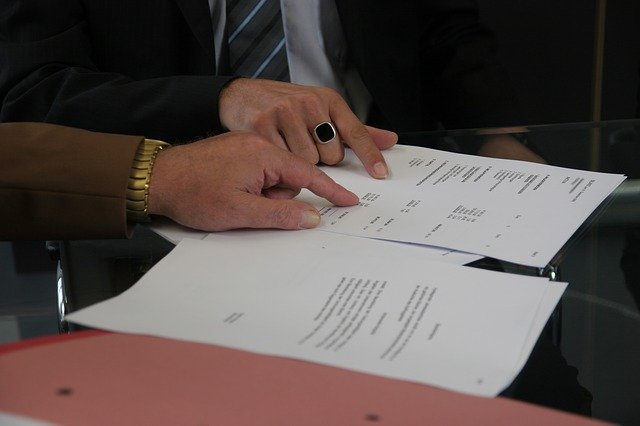Listen to the article
Michigan Security Deposit Law Explained
Published July 17, 2018. Updated June 8, 2023.
If you are a landlord looking to fill a vacancy for one of your Detroit investment properties, understanding Michigan's security deposit law is important.
Property owners must collect, store, and handle security deposits according to state law to avoid lawsuits or legal issues that can lead to income loss. However, understanding the rules isn't always easy!
Today our property management experts walk through seven common questions about security deposits to help investors handle them appropriately!
What is a Security Deposit?
The security deposit is intended to cover property damage resulting from a tenant's negligence or carelessness. It also helps cushion the landlord from financial ruin when a tenant moves out without paying rent.
Michigan provides guidance on setting security deposit amounts and using or returning deposits at the end of a lease.
7 Things to Keep In Mind When Handling Security Deposits
Now, let's talk through an overview of the state's landlord-tenant laws covering security deposits!
1. What Happens to the Security Deposit if Property Ownership Changes?
In case of a change in property ownership, the former landlord must transfer all the deposits to the new owner. Next, they must notify the tenant of the change.
When delivering a "Change of Ownership/Management" notice for the property, the former property owner must state that the deposit was transferred and inform tenants of the new owner's address or property manager's contact information.
Once this is done, the new owner becomes responsible for all liabilities regarding the renter's security deposit.
2. When Should a Rental Property Owner Return the Tenant's Security Deposit?
Michigan rental laws state that the property owner has 30 days to return the tenant's security deposit after they move out. If the landlord must make deductions to cover tenant damage, they must include an itemized list of those deductions and their costs.
In addition, the property owner must include a money order or a check for the portion of the security deposit being returned. The tenant will then have seven days to respond.

If the renter disputes the deductions, they should notify the landlord with a written notice. If the landlord disagrees and both parties cannot reach an agreement, then the property's owner should take legal action. This should be done within 45 days.
However, if the property owner fails to file the lawsuit on time, the court may rule in favor of the renter. In some cases, the court will give the renter twice the security deposit amount. Therefore, it's wise to be mindful of deadlines and this process or work with Detroit property management experts to handle these tasks for you.
3. Is a Walk-Through Inspection Necessary Under Michigan Security Deposit Law?
Yes. A walk-through inspection of the property is required under the Michigan security deposit law.
This inspection helps reduce misunderstandings between landlords and tenants during the return process for security deposits. In some cases, the tenant may think they left the property in pristine condition, but the landlord may disagree.
So, what exactly does a walk-through inspection entail? It involves the renter and the property owner going through the rental unit to inspect for damage or unsanctioned changes to the property.
Essentially, the landlord compares the property's existing condition to its initial state. If the renter has caused damage exceeding "normal wear and tear," the property can reduce the amount returned to the tenant. Michigan landlord-tenant laws specify that the landlord has the right to deduct the appropriate amount from their security deposit amount.

Normal Wear-and-Tear vs. Excessive Tenant Damage
When reviewing the condition of a property, owners must understand the difference between excessive property damage and normal wear and tear.
Normal wear for a rental property includes:
-
A minor stain or two on the carpet
-
Loose door handles
-
A few dings or scrapes in the wood flooring
-
Dirty grout
-
Silver finish on bathroom fixtures showing signs of wearing away
Property owners shouldn't keep any of the security deposit to repair these kinds of minor issues in a property. However, with excessive damage, landlords can keep some or all of the security deposit, depending on the issues.
Excessive damage can include:
-
Carpet soaked with pet urine
-
Missing or damaged door locks or handles
-
A hole in the door or a wall
-
A broken toilet seat
-
A smashed bathroom mirror
If you're not sure if specific damage or signs of wear justify withholding some of the security deposit, a property manager can help!
4. When Can a Michigan Landlord Keep Part of a Tenant's Security Deposit?
Other than tenant damage, when can property owners keep some of the deposit? Common reasons include:
-
Failure to pay rent
-
Failure to pay utility bills
-
Excessive property damage
-
Gross violation of the lease
Again, a seasoned Detroit rental management expert can help you follow the law when determining if it's safe to keep some or all of a tenant's deposit for various reasons.
5. Does the Landlord Need to Acknowledge Receipt of the Tenant's Security Deposit?
Yes. In Michigan, property owners must notify the tenant when they receive the security deposit. This is a separate document from the lease, and it's more than simply a "receipt" noting the amount.
In addition to acknowledging receipt of the deposit, the landlord must provide the tenant with an inventory checklist. Specifically:
-
The landlord must issue two copies of a property inventory checklist to the tenant.
-
The checklist must include all items in the unit, including carpet, windows, appliances, and so on.
-
The tenant must review the checklist as well as the property's condition. Once this is done, they must return a copy of the checklist to the landlord. This must be done within one week of moving in.
Besides an inventory checklist, real estate investors must also provide:
-
The name and address of the property's owner or management company
-
The name of the financial institution where the renter's security deposit is stored
-
A statement asking for the renter's forwarding address after move-out
Careful documentation is crucial to following landlord-tenant laws in Michigan.
6. How Should a Michigan Landlord Store a Tenant's Security Deposit?
Michigan property owners have two options when storing a tenant's security deposit.
-
Property owners can post it as a surety bond or a cash bond for the security deposit amount.
-
Place the tenant's security deposit in an escrow account.
Consult your accountant and a property manager to determine the best process for your rental properties.
7. What is the Maximum Security Deposit Amount Allowed in Michigan?
Can you set the security deposit amount as high as you want? Unfortunately, no.
The maximum amount a landlord can ask as a security deposit is equivalent to one-and-a-half times one month's rent. While you can certainly request a lower amount, property owners can't request more than that maximum amount to comply with state laws.
Detroit Real Estate Investing Experts Can Manage Security Deposits for You
There you have it: the security deposit law in Michigan explained.
However, we understand that collecting, storing, and processing these deposits can be challenging if you're unfamiliar with these laws or own multiple Detroit investment properties! So, if you need help handling deposits and tenants, reach out to Own It Detroit! We stay updated on all landlord-tenant laws and can help your rental properties stay compliant.








